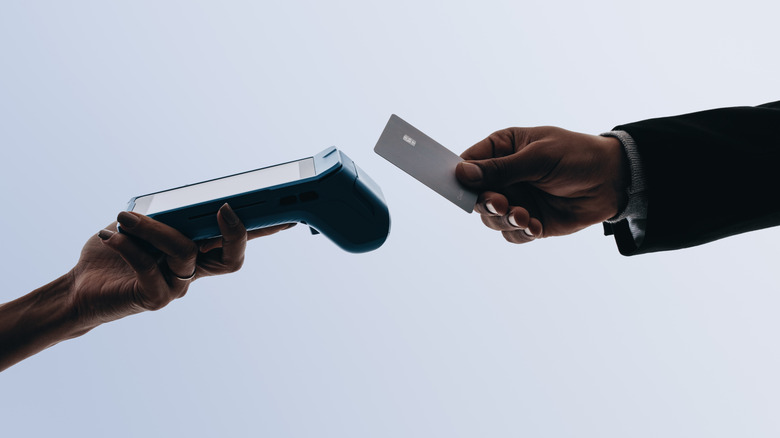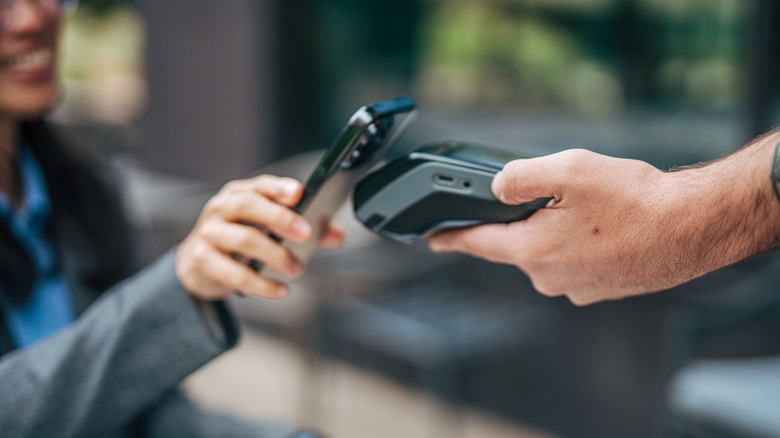What Is 'Ghost Tapping'? The New Tap-To-Pay Scam You Should Know About
The Better Business Bureau (BBB) issued a public warning about a new scam that could affect people looking to pay with mobile apps and certain credit and debit cards at the register. It's called "ghost tapping", and no, it has nothing to do with a neighborhood specter or an invisible hand tapping your shoulder. Despite the silly name, ghost tapping could net thieves hundreds or thousands in stolen funds.
Ghost tapping is a scam that specifically targets tap-to-pay cards and mobile wallets. Examples of the latter include PayPal and Venmo apps on iPhone and Android devices that support tap-to-pay functionality and mobile payments. To understand how the scam works, you need to comprehend the technology in use. Tap to pay relies on Near Field Communication (NFC), which allows devices to communicate with each other and send data when they are within close proximity. When you use tap to pay, you complete a transaction by tapping your mobile phone, smartwatch, or payment card to the processing device. This "tapping" sends your payment info to the payment terminal.
Thieves can take advantage of this simple payment method in many ways. Ghost tappers might bump into you in crowded spaces and surreptitiously move a tap-to-pay card reader within scanning distance. Fraudsters could ask you to donate a small amount to charity, while actually charging you much more. Some scammers might pretend to be vendors and rush the process so you don't notice the item's true cost. In October of 2025, Newsweek reported that a Missouri resident lost $100 to a ghost tapper carrying a handheld card reader.
How to avoid ghost tapping scams
To guard yourself from ghost tapping scams, be mindful of how you're using the related payment systems. Consider how crowded your surroundings are before you pay; keep some distance between you and other people, and limit tap-to-pay usage in high-risk or unfamiliar places. You should also set up transaction alerts so your bank or mobile app can notify you whenever a transaction occurs, even if it's tiny. The BBB also recommends you perform daily audits of your accounts and all expenses. Furthermore, when not in use, keep your payment devices or cards in a Radio Frequency Identification (RFID)-protected wallet or sleeve.
The rise of ghost tapping comes at a time when new NFC standards that enhance contactless payments and extend communication ranges are almost ready to roll out. These changes could make it easier for ghost tappers to steal your digital cash.
It truly pays to be cautious. Audit the apps and services you're using; make sure you understand the foundational technologies they utilize (including NFC), and maintain a solid grasp on how to protect yourself when ghost tapping strikes. Can you report fraud and recover lost funds through the apps and services you're using? Having a plan before you become a victim is the key to acting fast.

